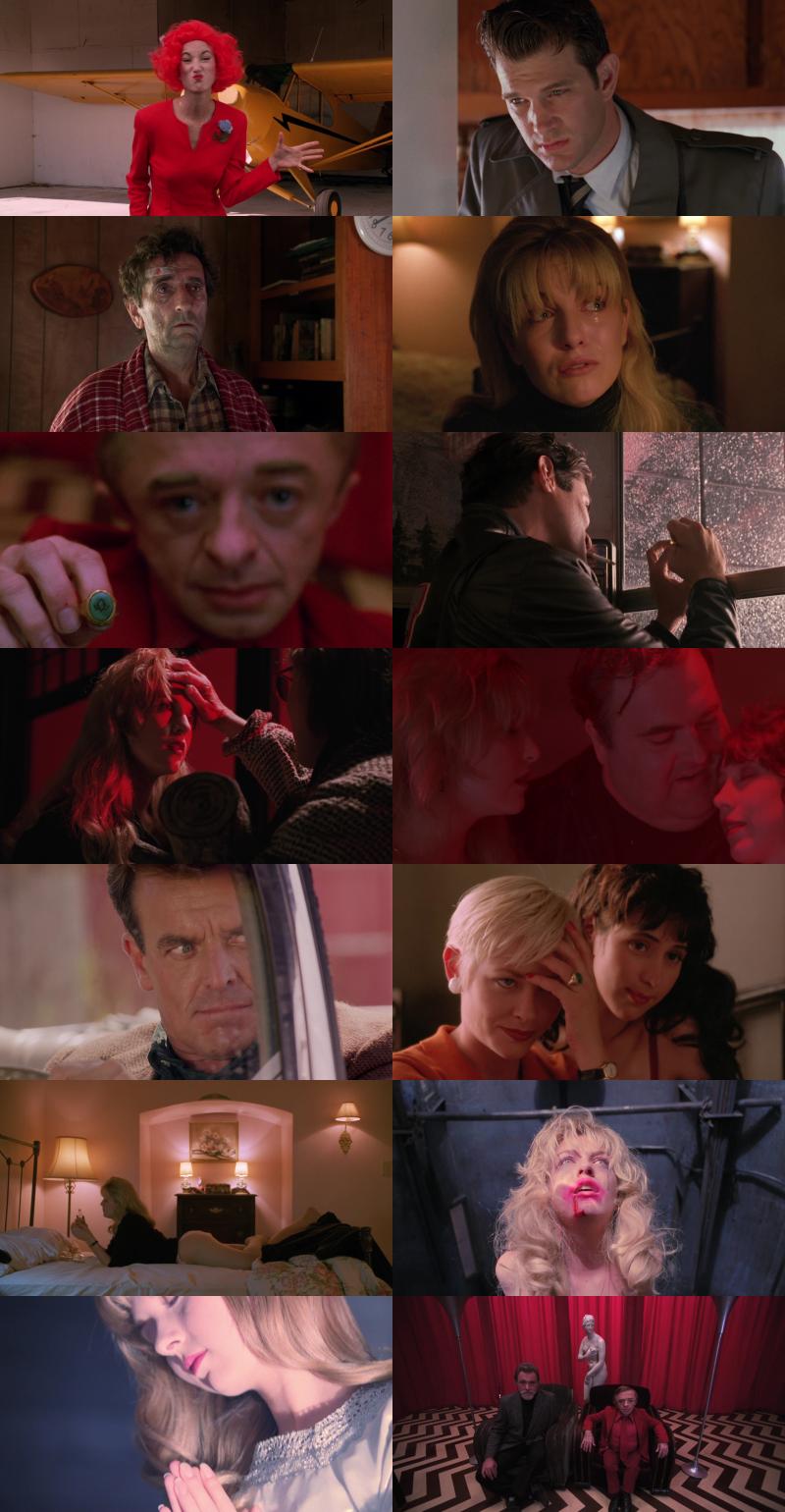Twin Peaks: Fire Walk with Me (1992)
Twin Peaks: Fire Walk with Me (1992), directed by David Lynch.
Wherein we investigate the death of Teresa Banks and, one year later, the harrowing final week of Laura Palmer's life. Meant to be watched after the original series, or at the very least, after you know who killed Laura.
The first season was an international sensation, but the second season collapsed after the big plot reveal. Lynch was away and displeased with what was done with the show. The feature film was his chance to revisit that world, breaking the constraints of television, making it R-rated and even weirder.
I remember reading and writing vast volumes of obsessive speculation back then, most of it forgotten now. Is there a coherent single theory of Twin Peaks? I doubt it. Too many loose threads. Unexplained and perhaps unexplainable mysteries. Says Lynch: the movie is about "the loneliness, shame, guilt, confusion and devastation of the victim of incest. It also dealt with the torment of the father -- the war within him."
Critics and audiences were unkind, but despite the bizzaro treatment and Lynchian self-indulgence, I like this one. If you were ever fascinated with his Twin Peaks creation, you can't help wanting to see more, to go in deeper, chase the mystery...
...until you think: "You know, mental illness is sad and frightening. Maybe I don't want to pursue this any further". That's a scary movie.
We see many episodes in Laura Palmer's road to ruin, partly self-destruction and partly due to demonic forces beyond her control. The final minutes build to scenes both horrific and amazing, with poor Ronette begging God's forgiveness in the rail car and an angel appearing to release her. Then another angel (and a different actress) appears to Dale and Laura in the Red Room, and they seem happy. I don't know what it means. Lynch often ends with a glimpse of Heaven.
Notes:
The first scene is of a TV being smashed, a pointed message from Lynch.
Laura shows a sort of psychotic coked-up transitive logic: she knows that "Mike is the Man", but that the deputy from Deer Meadow is also "the Man", so she can truthfully inform Bobby: "You killed Mike".
Note how Deer Meadow is a dark reflection of Twin Peaks, with its unfriendly police station and bad diner.
I'd forgotten Lynch's metaphysical terror of electricity.
A favorite moment: Harry Dean Stanton, as desolated as I have ever seen him, bleakly saying "You see, I've already gone places. I just want to stay where I am".
A heart-rending moment: Leland seems to come to himself, hugs his daughter and tells her he loves her. Crying, she asks the angel in the little painting: "Is it true?"
I always thought of Lynch as an intuitive director, throwing in things he had no idea what they meant, maybe working it out later. That's surrealism.
Much of the emotion comes from Angelo Badalamenti; that guy can score. He and Lynch seem perfectly attuned.
In one of the deleted scene we see Agent Cooper talking to "Diane" in the office, although we never see her. I always wondered if "Diane" wasn't the name of his tape recorder.
In another deleted scene, David Bowie as Agent Jeffries delivers perhaps the most terrifying theory of all: "We live in a dream".
Available on Blu-ray, disc 9 in "The Entire Mystery" box set.
As an outstanding extra we have 90 minutes of high-quality deleted scenes. I think it was proper not to try to insert them into an extended cut, but they fill in some spaces and let us visit that world yet one more time.
